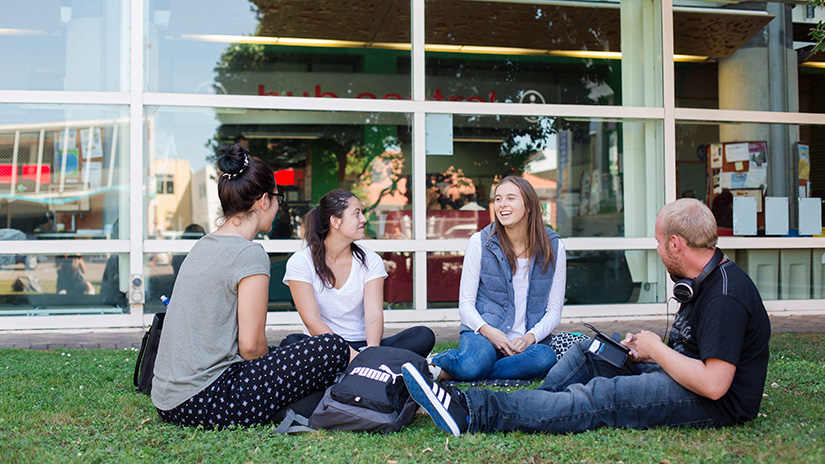
If you’re 24 years or younger, you may be eligible to enrol in one of our
Youth Transition programmes or
apply for a scholarship. With 60% of UCOL Te Pūkenga students under the age of 25, UCOL Te Pūkenga
has vibrant campus environments that deliver academic excellence along with a
fun student experience. Whether you’re still at school or you’ve just left,
UCOL Te Pūkenga has the support you need to make your transition to study with
us as easy as possible.
Youth Guarantee
Are you between 16-24 years old and have left school? Are you looking to
jump into a career but don’t know where to start? Find out about the UCOL Te Pūkenga Youth Guarantee scholarships.
Vocational Pathways
Vocational Pathways is a tool that helps you to see how your strengths,
interest and achievements relate to future study options and job
opportunities. The pathways provide clear study options that are valued by
employers and show you what employers expect to see you achieve in your
learning
What do Vocational Pathways mean for you?
Vocational Pathways give you the chance to identify your interests early on so
it’s easier for you to make the right choices when selecting subjects at
school or programmes at tertiary – keeping you on track in the best pathway
for you.
Why have they been introduced?
Vocational Pathways provide more options for students to complete NCEA Level
2. By having more choices, ways and places to achieve NCEA Level 2, you will
have more pathways into further learning and work. When you complete a
Vocational Pathway you will receive a Vocational Pathways Award on top of
receiving NCEA Level 2. This award is a way of showing employers that you have
the knowledge and skills they are looking for.
What happens if I’m interested in more than one pathway?
All of the pathways identify skills that employers across all sectors value. Maths and English skills are especially important across all
pathways, so as long as you are achieving the required literacy and numeracy
credits, you are still able to change direction in your learning. The pathways
cover six broad industry sectors:
Manufacturing and Technology
This pathway may be for you if you are interested in:
- wood, metals, textiles, chemicals or other materials
- making or processing food or beverages
- using technology to develop and monitor production
- working with your hands
- managing and planning production
Construction and Infrastructure
This pathway may be for you if you are interested in:
- physical work and working with your hands
- working with tools, machinery and equipment to do
- building, repair or maintenance work
- following and developing plans and specifications
- problem solving
-
making calculations, and preparing estimates and quotes for costs and
materials
Creative Industries
This pathway may be for you if you are interested in:
- Photography
- Design: graphic / interior / visual / fashion
-
Visual Arts: print / illustration / lens based media / painting / animation
/ sculpture
- The performing arts and music
Primary Industries
This pathway may be for you if you are interested in:
- raising and working with animals
- planting, growing and harvesting trees, plants and crops
- driving tractors, motorbikes, boats and heavy machinery
- doing physical work, and working with your hands
- working with tools, machinery and equipment
- business management such as budgeting and accounting
- science and research
Services Industries
This pathway may be for you if you are interested in:
- sales and customer service
- promoting and presenting goods to customers, and using
- creative skills
- business management
- working with food and drink
- providing accommodation
- planning, organising or promoting sports or fitness activities
Social and Community Services
This pathway may be for you if you are interested in:
-
working with people of different ages, life stages, abilities and cultures
- counselling and therapy
- community support and care
- diagnosing and treating people
- planning and organising
- health promotion and advice
- medical research, testing and technical support